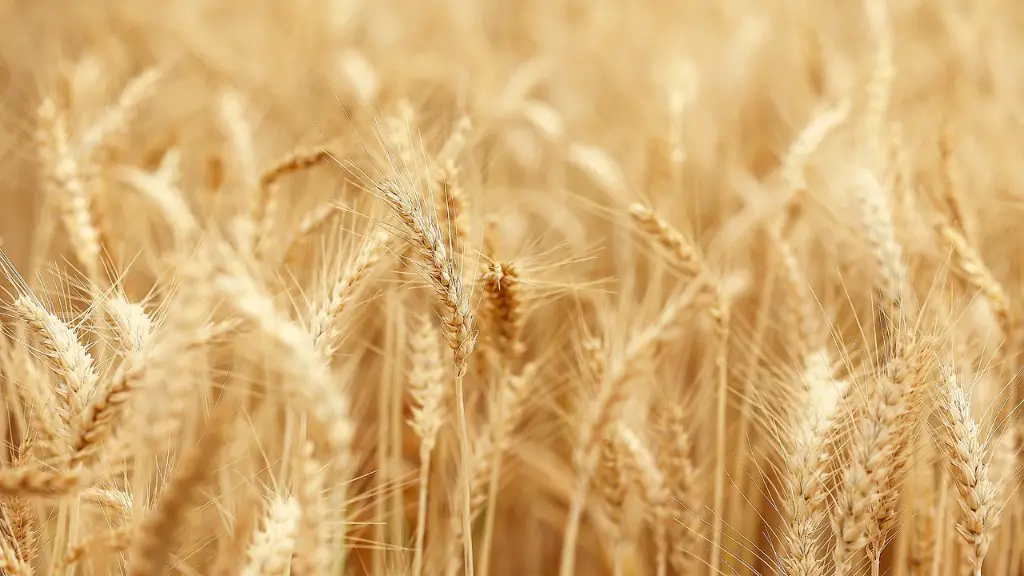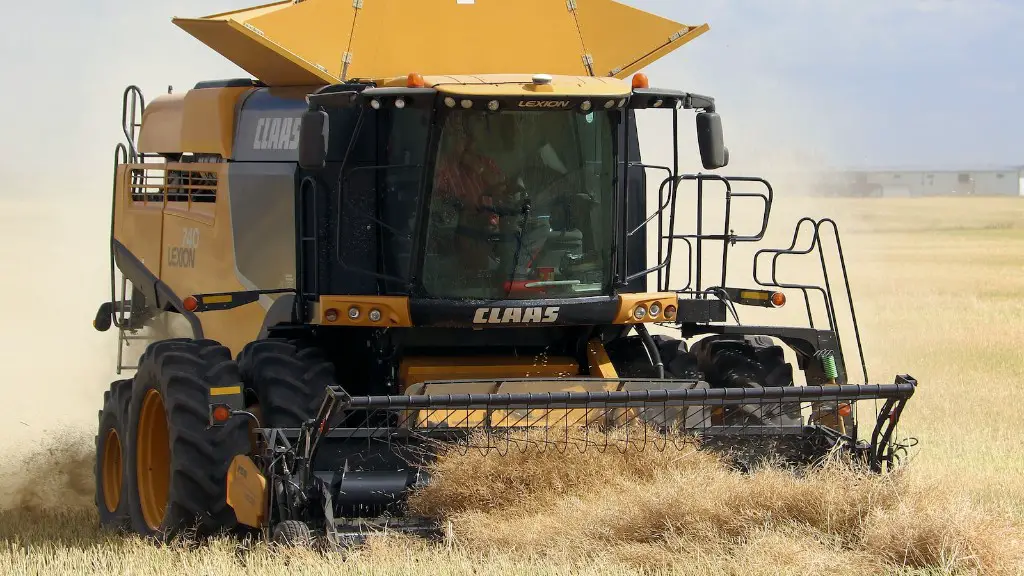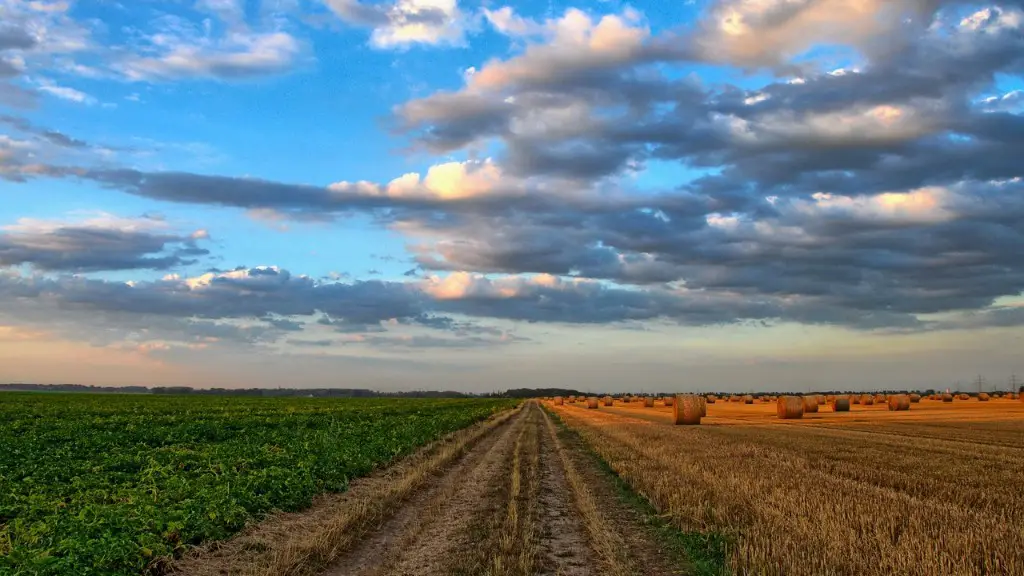Physics is the study of energy and matter. Agriculture is the study of plants and animals. Both disciplines are concerned with the effects of forces on objects. In agriculture, forces are typically applied to plants in order to make them grow. In physics, forces are studied in order to understand the behavior of matter.
There is a lot of physics involved in agriculture. From the study of how water evaporates and affects crops, to the study of how sunlight affects plant growth, to the study of how soil composition affects plant growth, physics plays a big role in agriculture.
How does physics apply to agriculture?
Farming is a complex and difficult process that is heavily reliant on a variety of factors, many of which are physics-based. The great primary problems of farming include investigating and controlling temperature, light intensity, soil mechanics, and water application and disposal. All of these problems are difficult to solve and require a great deal of knowledge and experience to overcome. However, the rewards of successful farming are great, and the process is essential to the continued survival of humanity.
Soil physics is a branch of soil science that deals with the physical properties and processes of soils. It is concerned with the way in which these properties and processes interact with each other and with the environment.
Soil physics is at the heart of soil and water conservation, with much of the work focusing on soil erosion and water quality. Land management affects physical properties such as bulk density, infiltration, aggregation, and hydraulic conductivity, which are crucial for soil and water conservation efforts.
Good soil physical properties are essential for maintaining soil productivity and for minimizing the negative impacts of human activities on the environment. Soil physicists work to understand the physical properties of soils and how they are affected by management practices. They use this knowledge to develop conservation practices that will improve the quality of our soil and water resources.
How is science used in agriculture
The necessity of rotating crops and fertilizing to improve soil quality and maintain a healthy environment is just one example of the everyday application of science in farming. Water sampling is also an important aspect of agriculture today. By understanding the science behind these everyday tasks, farmers are able to more effectively and efficiently care for their crops and animals.
Agrophysics is the application of physics to agriculture and the environment. It can help to limit hazards to agricultural objects (soils, plants, agricultural products and foods) and to the environment. It is an important branch of natural sciences.
Do I need physics to study agriculture?
Agricultural science is the study of plant and animal production, including the processing of food, fibers, and other products. Physics, chemistry, and mathematics are important for understanding how crops grow and for developing new ways to increase yields. Biology is important for understanding the behavior of pests and for developing new methods of pest control.
Food physicists work on developing and improving food processing technologies. They investigate the physical and chemical properties of food, food ingredients and food processing products. Food physicists use their knowledge of physics to develop new ways to process, preserve and package food. They also work on developing new methods to measure the physical properties of food.
How is physics used in environment?
The principles of physics underlie much of what we see in the world around us, including the way energy and heat flow in and out of ecosystems, the way water carries sediments, how warm and cold ocean currents circulate and influence aquatic ecosystems, and how pollutants and greenhouse gases are transported through our atmosphere and environment. Physics can help us to understand and predict these and other processes, and to develop technologies to improve our lives and our planet.
Energy is one of the most important topics in physics and also has a huge impact on the environment. Climate is largely determined by the amount of energy that the Sun provides to the atmosphere and oceans, and how this energy is then distributed around the world. A better understanding of energy and its transformation can help us to improve our understanding of climate and make better decisions about how to protect our environment.
Physics is a natural science that involves the study of matter and its motion through space and time, along with related concepts such as energy and force. More broadly, it is the study of nature in an attempt to understand how the universe behaves.
Physics is essential to many fields, including engineering, medicine, and biology, as well as our understanding of the natural world. It can be divided into classical physics, which studies the behaviour of matter and energy under the influence of forces, and modern physics, which explores the very large (e.g. cosmology) and the very small (e.g. quantum mechanics).
Agriculture is a branch of biology that deals with the cultivation of crops and the rearing of livestock. It is the key component of the rise of human civilization. Agriculture allowed for the domestication of plants and animals, which led to the development of civilizations. Agriculture is still a vital part of human society, providing food, fiber, and other resources.
What science does agriculture fall under?
Agricultural Science is a broad program that exposes students to agriculture in terms of the sciences as well as the economic and social science disciplines that are integral to the industry Some aspects that students are exposed to include agricultural production, soil and water conservation, research, and business. Agricultural Science provides students with the opportunity to obtain the skills and knowledge necessary to pursue careers in the agricultural industry or related fields. The program also allows students to develop essential skills such as critical thinking, problem solving, and communications that can be applied in any number of settings.
In agriculture, scientists are always looking for ways to increase livestock and crop yields, improve land productivity, reduce losses due to disease and insects, develop more efficient equipment, and improve overall food quality. By constantly innovating and improving upon existing practices, agriculture scientists help ensure that the world has enough food to sustain its growing population.
What is the meaning of agro physics
Agrophysics is a science that studies physical processes and properties affecting plant production.
It deals with the plant’s response to physical stimuli, such as light, temperature, moisture, and nutrients in the soil. Agrophysics also investigates how plants interact with their environment, including other plants, animals, and microorganisms.
This information can be used to improve crop yield, quality, and resilience. It can also help us understand and mitigate the effects of climate change on agriculture.
Agriculture courses are typically highly interdisciplinary, requiring students to have a good grasp of both natural sciences and social sciences. Areas such as biology, environmental sciences, chemistry, economics and business and management are all relevant to the study of agriculture, and students will need to be able to draw on knowledge from all of these disciplines in order to be successful.
What are the major subjects in agriculture?
These are all related fields of study because they all deal with different aspects of working with and developing land for various purposes. Agricultural engineering deals with the production of food, while agronomy deals with the science of using plants for food, fuel, or other purposes. Aquaculture and fisheries deals with the raising and harvesting of fish and other aquatic creatures, while forest sciences deals with the management and utilization of forests. Rural development deals with the planning and development of rural areas.
The BSc Agriculture program at our university covers all the major aspects of the agricultural industry, from plant genetics and meteorology to food technology and horticulture. Students in this program gain a well-rounded education that prepare them for successful careers in the agricultural field.
Final Words
There are many ways in which physics is related to agriculture. For example, physics is important for understanding the behavior of water in soil, which is essential for irrigation. Physics is also relevant for understanding plant growth, as it can help to optimize the use of light, nutrients, and water. Additionally, physics can be used to develop new technologies for agriculture, such as sensors for monitoring crop health, or machine learning algorithms for optimizing irrigation.
Agriculture is the science and art of cultivating plants and livestock for food, fiber, and other products used to sustain and enhance human life. Physics is the study of the fundamental principles governing the natural world. Although the two disciplines may appear to be unrelated, they are actually intimately connected. Physics is essential to understanding how the world works and how agricultural processes can be optimized. For example, the study of thermodynamics is crucial for understanding the efficient use of energy in agricultural systems, while the study of fluid dynamics can help improve irrigation techniques. By applying the principles of physics, agriculturalists can increase crop yields, improve livestock health, and make other important contributions to the sustainability of our food supply.





